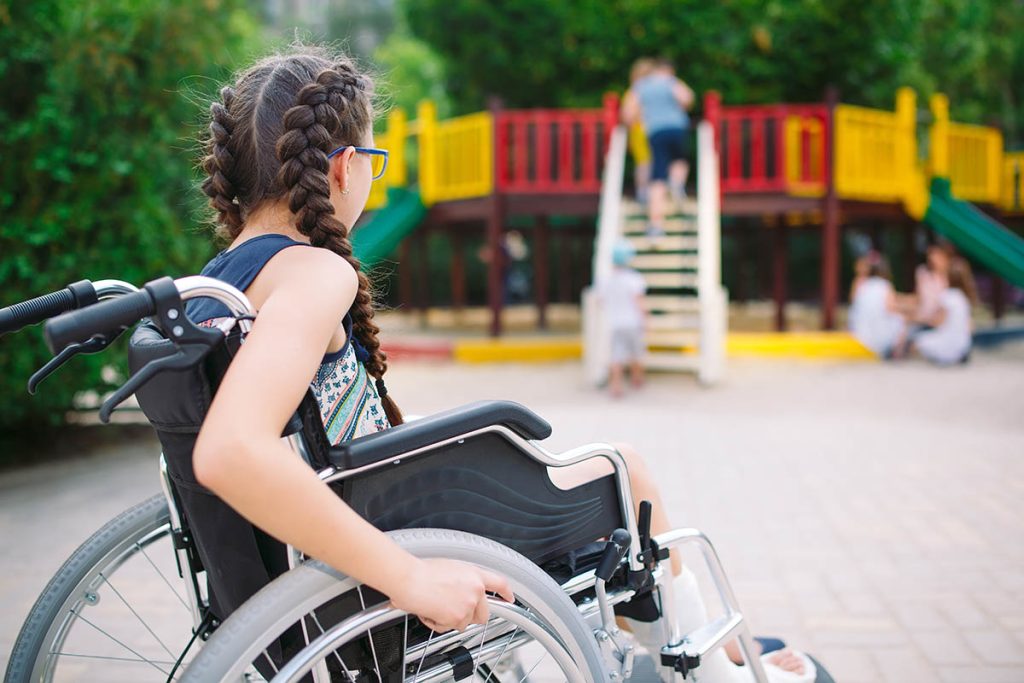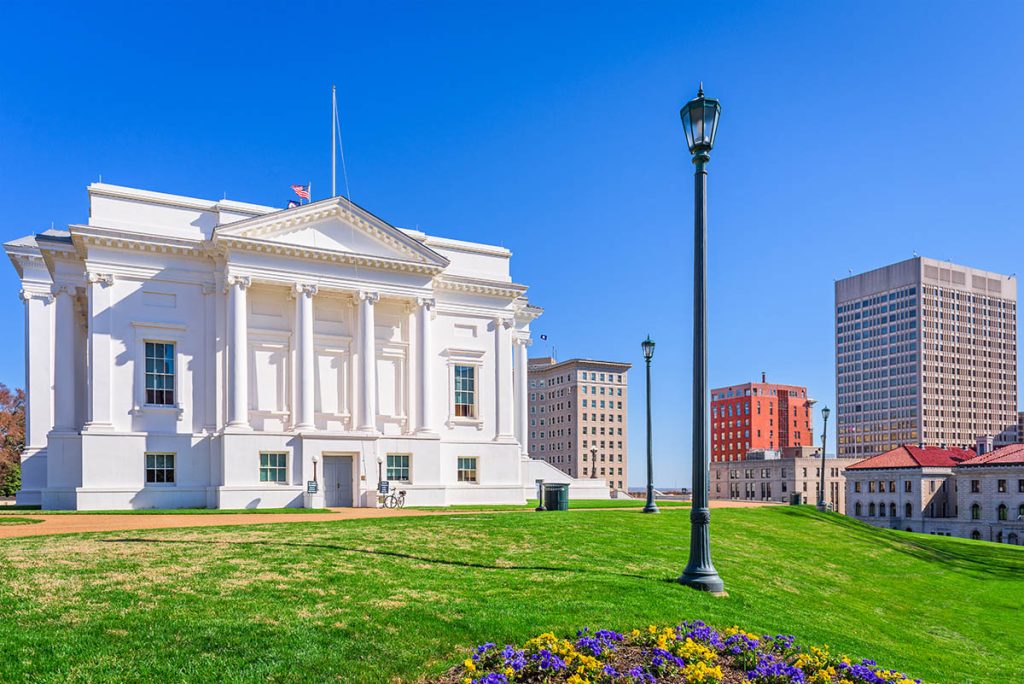Learn more about our work to profoundly change the laws governing the rights of children in Virginia under the the Individuals with Disabilities and Education Act (IDEA).

We are currently drafting proposed legislation to profoundly change the laws governing the rights of children in Virginia under the Individuals with Disabilities and Education Act (IDEA). We believe that the Virginia Department of Education (VDOE) and many of the public schools in Virginia have failed to adequately protect the civil and federal rights of disabled and special needs children and have failed to carry out their obligations under the IDEA.
Specifically, we have obtained nonpublic documents from the VDOE through our efforts under the Freedom of Information Act (FOIA) that have revealed a public scandal. These documents have revealed that when parents in Virginia have brought actions under the IDEA to challenge public schools to provide a better education for their children, hearing officers appointed under state law have almost never ruled in favor of such parents. The following is a description of some of what we have uncovered:
1. Over the past twenty (20) years in 1,391 due process cases brought in Virginia by parents under the IDEA to seek a better education for their disabled or special needs children, hearing officers have ruled in favor* of parents in only twenty-five (25) cases representing less than two percent (2%) of the total number of cases brought by parents.
2. In Northern Virginia over this same twenty (20) year period, the results are even worse. Hearing officers have ruled in favor of parents in only seven (7) out of 578 cases brought by such parents for their disabled and special needs children representing approximately only one percent (1%) of all such cases.
*This summary excludes “split decisions” which occur when a hearing officer rules in part for the school and in part for the parent. Split decisions have been immaterial in the last twenty years representing approximately 2.5% of the total hearing officer cases.


3. Out of forty (40) hearing officers appointed in the last twenty years, twenty-six (26) have never ruled, not once, in favor of a disabled or special needs child in a due process case brought under the IDEA. This means that when parents face the Virginia public school system on behalf of their children in due process hearings, almost two-thirds (65%) of the hearing officers have never ruled in favor of such a parent.
4. The ruling record of hearing officers in Northern Virginia is even more shocking. Over the past decade, ten (10) of the twelve (12) hearing officers representing eighty-three percent (83%) of the hearing officers in Northern Virginia have never ruled, not once, in favor of a disabled or special needs child in a due process case brought under the IDEA. Ten years is a generation of our children.
5. Of the mere two (2) hearing officers in Northern Virginia who have ever ruled for disabled or special needs children in a case brought under the IDEA, there have been only a total of only three (3) rulings out of 395 cases in which such hearing officers have ruled in favor of such children representing less than one percent (specifically only 0.76%) of the total due process cases.
6. The same core group of twenty-two (22) hearing officers has remained in place, virtually unchanged** and responsible for this scandal over the last twenty (20) years.
7. We have spent a significant amount of time researching and reviewing numerous studies compiled by law professors and educators of hearing officer ruling records in other states. By way of comparison, the national average of parental success rate is approximately thirty percent (30%) in due process cases brought in all states. In states comprising approximately eighty percent (80%) of all due process cases brought in the U.S., the average parental success rate in many of such states is even higher than thirty percent (30%), and in some cases substantially higher.
**After one of the hearing officers had been identified in 2021 as having never ruled for a disabled or special needs child in her entire career spanning over twenty years as a hearing officer, we understand that the VDOE appointed several new hearing officers in late 2021 which was after the period subject to our FOIA request. These were the first new appointments in what we believe have been over a decade and possibly up to twenty years.
We believe this scandal has occurred from inadequate oversight by the Virginia Department of Education (VDOE), and systemic, improper conflicts of interest between the VDOE and the Virginia public school system, and hearing officers.
The failure of oversight has been confirmed by none other than the U.S. Department of Education, the federal agency tasked to oversee state public school systems. The U.S. Department of Education’s Office of Special Education Programs (OSEP) has repeatedly found that the VDOE is in violation of multiple provisions of the IDEA. Not widely known to the public, in 2020 the U.S. Department of Education commenced an audit of the VDOE following what it called an “unusually high number” of complaints from parents of special education students in Virginia. The U.S. Department of Education uncovered a significant number of violations by the VDOE of the IDEA which included systemic and structural defects in oversight. For example, on June 23, 2020, the OSEP found the VDOE to be in violation of the IDEA and other federal statutes and regulations because the State “does not have procedures and practices that are reasonably designed to enable the State to exercise general supervision over all educational programs for children with disabilities administered with the State, to ensure that all such programs meet the requirements of Part B of the IDEA . . . .”
As a result of the 2020 audit, the VDOE has been subject to a monitoring program by the U.S. Department of Education for such IDEA violations. Virginia is still violating the IDEA and is not in compliance with the federal monitoring program. In February of 2022, the OSEP wrote VDOE another letter, indicating that Virginia had not demonstrated correction of many of the non-compliance items identified in the OSEP’s June 2020 letter. OSEP further wrote that it “continues to be contacted by multiple parents and other stakeholders in Virginia regarding the State’s system of general supervision, including, but not limited to, monitoring, due process, and policies and procedures governing independent educational evaluations (IEEs).”
There are systemic conflicts of interests between the Virginia public school system and hearing officers that is rooted in bad law. While the Office of the Executive Secretary of the Virginia Supreme Court (“OES”) is supposed to oversee hearing officers, the VDOE for all practical purposes has the powers of review and removal over all hearing officers. Since July 7, 2009, the VDOE has been authorized by state regulation to establish procedures for oversight of hearing officers and to provide “the Office of the Executive Secretary annually the names of those special education hearing officers who are recertified to serve in this capacity.” 8 VAC 20-81-210.C. Since July 7, 2009, the governing regulation provides that all hearing officers “shall be subject to the Virginia Department of Education’s review of recertification status based on past and current performance.” 8 VAC 20-81-210. D.2.b. The VDOE is authorized to review such hearing officers annually and to determine whether they qualify for recertification.
This regulatory structure creates an inherent conflict of interest that undermines the integrity, and the impartiality, of the entire system governing due process hearings in Virginia. To put this in practical perspective, the party litigating against parents before hearing officers, school districts, are overseen by the VDOE – the same party with the power to determine whether such hearing officers remain eligible to serve and receive their fees as hearing officers. The only player the hearing officers see on a repeat basis is the party that is recertifying and paying them – the public school system not parents. The system is set up to disincentivize hearing officers from “biting the hand that feeds them.” We believe hearing officers appointed and reviewed by the VDOE have demonstrated over many years and in many cases that they are not reliably neutral and impartial. Yet those same hearing officers are time-and-time-again rewarded with recertification, and continue to receive lucrative fees annually for presiding over due process hearings.
It is clear that the laws in Virginia need to change in order to ensure that the disabled and special needs children can receive a free and appropriate education that is guaranteed to them under the Individuals with Disabilities and Education Act.
The Virginia Department of Education and its public school system has breached our trust and has failed to fulfill its obligations to our disabled and special needs children. Hear Our Voices believes that the Virginia public schools operate a rogue system that has trampled the civil and federal rights of its most vulnerable community for years if not decades. The Virginia public school system has overseen and fostered a system where two thirds of all hearing officers have never ruled in favor of a disabled or special needs child in two decades. Those few hearing officers who have ruled have only done so in only one percent (1%) of 1,391 due process cases brought by parents under the IDEA in the last twenty years. This ranks Virginia as one of, if not the worst, state in the country for public schools overseeing the education rights of its disabled and special needs children.
We need your support to approach members of the Virginia Senate and House of Delegates to force the VDOE to comply with its obligations under the IDEA and to change the laws affecting Virginia’s disabled and special needs children, to ensure they are getting the educational services they need, and to which they are entitled under federal and state law. We will be proposing legislation that effects the following changes to Virginia law:
1. Burden of Proof in Due Process Cases. When a parent brings a claim in a due process case under the IDEA, the burden of proof in Virginia is on the parent. The burden of proof should be on the public schools for due process cases under the IDEA.
(a) Fairness. The burden of proof should be on public schools due to the natural imbalance of power in favor of a public school over a parent. Even if the schools have the burden of proof, it is still a “David vs. Goliath” dynamic as the public school is a much larger party with much more resources than parents. The public schools also have much more in-house expertise and knowledge and more financial resources than parents. Shifting the burden of proof to schools is both reasonable and fair.
(b) Track Record. Several states, as well as the District of Columbia, place the burden of proof on the public schools to justify their refusal to provide requested services to disabled and special needs children. These states include nearby states New York, New Jersey and Delaware as well as the District of Columbia. As a result of appropriately placing the burden of proof on the schools, rather than the parents, the parental success rate in these states is much more even-handed. Virginia touts itself as a leader in public education. Virginia should take a leadership role in changing the burden of proof similar to D.C. and these other states.
2. Establishment of an Independent Oversight Board. Parents of disabled and special needs children have a Constitutional and federal right under the IDEA to a neutral and impartial hearing officer. Hearing officers and the party litigating against parents in due process cases – the public school system – are both overseen by the same party – the Virginia Department of Education (VDOE). In fact, the VDOE is responsible for training, paying and annually recertifying hearing officers. This creates an inherent, structural conflict of interest that we believe has contributed to the abysmal ruling record of hearing officers against parents. The oversight of hearing officers should be by an independent board of qualified Virginia citizens who represent a balance between the interests of schools and parents.
(a) Terminate VDOE’s Statutory Authority over Hearing Officers. The VDOE’s statutory power to oversee and recertify hearing officers should be severed and replaced by an independent oversight board.
(b) Establish and Fund an Independent Oversight Board. An independent oversight board should be established to oversee hearing officers, including their training, compensation, and the hiring and firing of hearing officers. The board members should be knowledgeable and qualified Virginia citizens who represent both the interests of parents of disabled and special needs children and the interests of the public schools. Balanced oversight should lead to more reasonable and balanced outcomes in hearing officer rulings.
(C) Investigate and Terminate Existing Hearing Offices as Appropriate. The independent oversight board should immediately investigate all existing hearing officers for both competence and impartiality and terminate as appropriate hearing officers who are unfit to serve.
(D) Annual Review and Recertification of Hearing Officer Performance. The independent oversight board should annually review the performance of hearing officers for both competence and impartiality. The board should also be empowered to be responsible for the training and recertification of hearing officers.
3. Term Limits for Hearing Officers. The same core group of twenty-two (22) hearing officers has remained virtually unchanged over the last two decades and has been left in place to rule against parents in almost every case parents bring under the IDEA. In fact, parents have never experienced a ruling fully in their favor by more than a majority of these hearing offices (actually two-thirds). This needs to change. Hearing officers should not get too comfortable with the income stream from serving as hearing officers. There should be term limits on how long individuals may serve as hearing officers.
4. Require Transparency. It is insufficient for the VDOE to publish on its website individual rulings of hearing officers. This is not useful information as it provides no metrics on the aggregate rulings of such hearing officers. The VDOE should be required to compile and publish annually the ruling records of all hearing offices so that the current scandal never happens again in Virginia.
5. Improve the Quality and Balance of Training of Hearing Officers. The independent oversight board should oversee the quality and frequency of hearing officer training. As part of such role, the board should ensure that hearing officers receive a balanced view of the perspectives of both the public schools and parents of the disabled and special needs children.